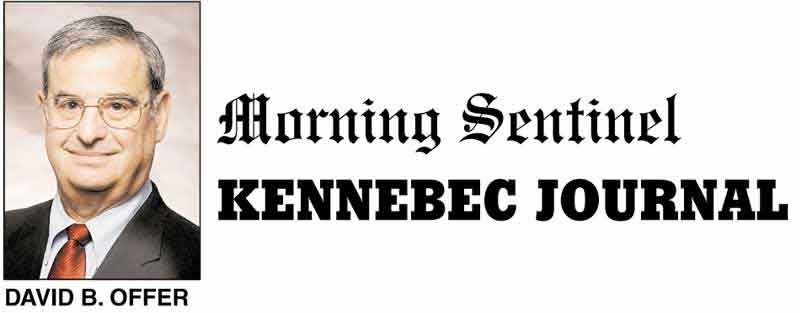In 1984, the Wendy’s hamburger chain aired a TV commercial that became famous. It showed actress Clara Peller looking at a hamburger from an unnamed Wendy’s competitor. The burger was dwarfed by the large bun.
“Where’s the beef?” Peller asked.
A similar question is relevant in Maine politics today: Rampant voter fraud? Out of control MaineCare fraud? Where is the evidence?
I have no doubt that some college students — including a few in Maine — vote illegally, casting ballots both in their home state elections and in this state. I have no evidence to support this assertion, but common sense suggests that at least a handful of students don’t give much thought to the technicalities of voting law and decide to vote in whatever elections interest them.
I am equally sure that some people defraud the state by claiming health care benefits they are not legally entitled to receive, and I am aware of a few court cases showing that fraud exists. But in spite of the assertions from those who see conspiracy everywhere, I am not convinced that there is a scandal requiring revision in Maine laws regarding elections or MaineCare.
It would be poor public policy to upend laws that have made it easy for Mainers to vote and generated a greater turnout than most other states unless there is solid proof — not theories or wild allegations from political insiders — that there has been significant fraud, and that the proposed changes in the laws would solve the problems.
The same is true of the recent charges that the MaineCare system is vulnerable to fraud. It would be ridiculous to condemn the Department of Health and Human Service based on a videotaped interview by an actor who tried to trick a state worker into offering him benefits he plainly should not receive.
The tape “reveals explosive evidence of the potential for fraud within Maine’s Medicaid system,” said Carol Weston, state director for Americans for Prosperity, a tea party-oriented lobbying organization. “It replaces what have been unverifiable anecdotes of welfare system fraud and abuse with a concrete example of unethical and potentially illegal behavior within Maine’s welfare bureaucracy.”
The parts of the tape I have seen on TV news and the accounts I have read in this newspaper show the opposite of what Weston claims.
The tape shows a meeting between the actor posing as a MaineCare applicant meeting with a state worker. The worker did not approve his request for aid and summoned a superior to ask even more questions of the fake applicant. The actor left with blank papers — something anyone can have — and no benefits.
Weston does a disservice to the unnamed state worker by suggesting that she was somehow involved in “unethical and potentially illegal behavior.”
In spite of Weston’s allegation, the only unethical behavior came from the actor who hoped to dupe a busy state worker into making embarrassing statements and by Weston and by the Maine Heritage Policy Center who allowed themselves to be used and manipulated by the people who concocted this stunt to trap a state employee.
The man behind the video plot was James O’Keefe, a political activist who has made his mark — and obtained a criminal record — with other plots involving hidden videotapes seeking to trap people into making statements that might embarrass political liberals. That presumably includes Maine workers who help poor people obtain medical care.
Perhaps that state worker should have sensed the fraud immediately and thrown the actor/scoundrel out of the office. Perhaps better training would have cut the meeting from 47 minutes to five or 10. Maybe, as Gov. Paul LePage said, the tape shows need for better training of state workers.
But, as the governor noted, it does not show fraud, and it does not indicate need for a major overhaul of the MaineCare system.
There is a similar lack of evidence in the continuing battle over voting laws in Maine.
Despite repeated assertions by Maine Republican Party Chairman Charles Webster, there is no evidence of widespread voter fraud in the state, certainly nothing to require major changes in voting laws.
Webster has claimed he can prove some students from other states who go to college in Maine voted at home, then voted in Maine, perhaps in the same election.
No independent agency has examined Webster’s evidence, and no one has been charged with fraud, but his anti-student diatribe continues. We will undoubtedly hear more of this as an effort to overturn voter restrictions passed by the Republican-dominated Legislature are debated in the coming people’s veto campaign.
We’re not making hamburgers here, but the question remains: Where’s the beef?
David B. Offer is the retired executive editor of the Kennebec Journal and the Morning Sentinel. Email davidboffer@hotmail.com.
Send questions/comments to the editors.


